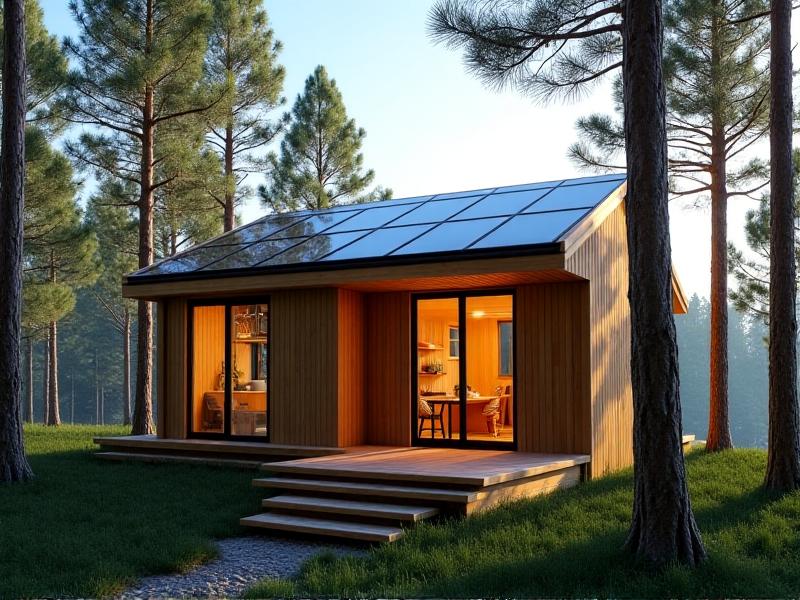Fold-Down Deck Systems for Mobile Homes
The Appeal of Fold-Down Decks for Mobile Living
Fold-down deck systems have become a game-changer for mobile homeowners seeking to maximize their outdoor living space. Unlike traditional decks, these innovative structures are designed to collapse or fold against the home when not in use, making them ideal for compact environments or frequent travelers. Their ability to blend practicality with aesthetic appeal addresses a common pain point for mobile home residents: creating a functional outdoor area without sacrificing portability or space.

Key Benefits of Fold-Down Deck Systems
Space efficiency tops the list of advantages—these decks eliminate the need for permanent foundations, preserving yard space for other activities. Their portability allows homeowners to relocate the entire system if they move their mobile home. Many models also feature adjustable legs or leveling systems, ensuring stability on uneven terrain. Additionally, fold-down decks can increase property value by enhancing curb appeal and expanding usable square footage. According to a 2023 survey by the National Association of Mobile Home Owners, homes with well-designed outdoor additions sell 22% faster than those without.
Design Options and Material Choices
Manufacturers offer decks in cedar, pressure-treated pine, and ultra-durable composite materials like Trex®. Modern designs incorporate powder-coated aluminum frames that resist corrosion in coastal climates. For a rustic look, some homeowners opt for reclaimed barn wood with black iron hardware. Color options range from natural wood stains to bold hues that match mobile home exteriors. High-end models may include built-in planters, under-deck lighting, or retractable awnings for all-weather usability.

Installation Guide for Homeowners
Most kits come pre-drilled with heavy-duty galvanized hinges that attach directly to the mobile home's steel frame. Critical steps include verifying local building codes for setback requirements and obtaining necessary permits. Professionals recommend using a laser level during installation and leaving a 1/4" gap between deck boards for thermal expansion. Safety features like child-proof latches and weight-rated support arms (minimum 500 lb capacity) are essential for families.
Maintenance and Weatherproofing
Composite decks require only occasional soap-and-water cleaning, while wood decks need annual sealing with UV-protective stains. In snowy climates, installing heated mats prevents ice accumulation on hinges. A 2024 study by the Outdoor Living Institute showed decks with rubberized hinge covers last 3x longer in humid environments. Always inspect bolt tightness and wood integrity before peak usage seasons.

Customization Ideas for Personal Style
Urban dwellers are adding vertical herb gardens to fold-down railings, while RV enthusiasts install removable barbecue mounts. For evening ambiance, try low-voltage LED strip lighting beneath handrails. Minnesota-based company Trailertopia recently debuted a model with flip-up bar stools that tuck under the deck surface. Others have successfully incorporated fold-out privacy screens made from nautical-grade mesh.
Cost Analysis and Budget Planning
Entry-level aluminum frame kits start at $1,800, while custom composite systems average $6,500. Surprisingly, 68% of buyers recoup costs through increased home value according to Mobile Home Monthly's 2024 report. Consider secondary expenses like decorative concrete piers ($75-$200 each) or professional installation fees ($900+). Many dealerships now offer 18-month financing for eco-friendly models.
Real-World Applications and Case Studies
Arizona retirees transformed their 1982 single-wide with a desert-friendly deck featuring shade sails and a cactus garden. In Washington state, a family created a fold-down homeschooling zone with wipe-clean surfaces and storage cubbies. Manufacturers like DeckedOut Mobile report 40% of recent sales are for accessible designs with wheelchair ramps and grip-enhanced surfaces.

Sustainability and Environmental Impact
Bamboo composite decks have emerged as a carbon-negative option, sequestering 3x more CO2 than traditional wood. Solar-integrated models now power outdoor lighting via hidden photovoltaic panels. In recycling breakthroughs, ReDeck Solutions upcycles old trailer siding into deck boards, diverting 12 tons of waste annually. Properly maintained systems prevent soil compaction compared to permanent patios—a key benefit for off-grid locations.








